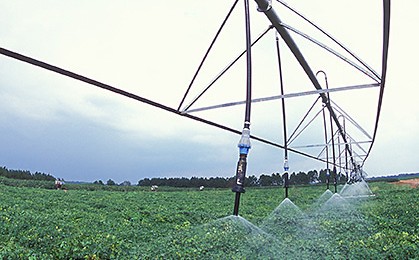Crops
-

While many impacts of Debby, Helene, Milton, and other tropical systems have already been documented by extension agents, media, and insurers, more impacts are still being identified. Here are a couple of stories that describe some new impacts I have not seen before. Helene Impact: Georgia Vidalia Onion Farmers Suffered Plant Loss Disappointing Output: Georgia…
-

Did you know that onions have been used in the past to predict the next year’s weather? Neither did I. Gastro Obscura has a very interesting article this week describing how twelve layers from a freshly-cut onion were salted and left overnight to see how they reacted to predict what the climate would be for…
-

In the Southeast, El Nino and La Nina affect our local climate, which can influence the yield and condition of crops in our region. But El Nino and La Nina also affect climate in other parts of the world, and using knowledge of what state the El Nino Southern Oscillation is in can be used…
-

Much of the Southeast was dry this summer except for areas that got hit by either Debby or Helene or both. This article from Southeast Farm Press describes the difference that even 4 inches of irrigation made this year on yields of corn and soybeans in NE Alabama, which got missed by most of the…
-

With the impending arrival of La Nina (see related post today), farmers can start to make some educated guesses about what the winter weather conditions are likely to be. My colleague Bob Kemerait of the University of Georgia wrote an article for Southeast Farm Press describing the likely effects of a warmer and drier than…
-

While I have been busy answering hurricane-related calls and emails, there have been plenty of other weather-related topics discussed in recent news. Here are some more stories of interest that I saw lately that are not related to hurricanes. AgWeb: Georgia Farmer Reaps Bigger Yields By Focusing On Better Acres Farm Progress: Mississippi River dries…
-

Stories discussing the impacts of recent hurricanes Helene and Milton are rolling in, and illustrate just how devastating the storms were for our farmers and those who provide services like equipment sales, buying crops, etc. I am posting this in part just to keep a record of these stories but I think you will be…